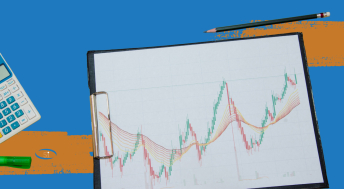With news of numerous brokerages going to $0 trading commissions, the trend toward direct indexing just got a lot more compelling for investors. Direct indexing essentially lets an investor buy the underlying securities within an index (say the TSX 60 or the S&P 500) automatically at their broker without owning them through some sort of fund or ETF. When you had to pay $5 to $20 per trade, this was not a particularly feasible approach. But now, with free trading commissions in the US, this strategy just got a lot more interesting and could actually give ETFs a run for their money. Here is why we think Direct Indexing has potential to upend the ETF industry:
Direct Indexing can be cheaper
When you own an ETF or fund, you pay an ongoing annual fee to own that fund. With direct indexing, you in theory do not have to pay anything to hold the index allocation. While we think investors can start to split hairs a little when evaluating a 0.05% fee fund to a 0.1% fund, the reality is that ETFs gained their edge because of low costs and now might be a victim of what they used to succeed in the first place.
Direct Indexing can be more tax efficient
When you own a fund and want to rebalance or do tax-loss selling, you can either sell units of the fund or not and those units are sitting at either a gain or a loss. With direct indexing, you would have an ability to not sell the entire index and sell only individual securities that have under or over performed within the index. So, if energy had a bad year, you could sell all energy stocks in the TSX for tax losses and continue to hold all of the other items within the fund so you don’t trigger gains. Put another way, the index itself could be up on the year but you can still harvest a tax-loss within the index. In the ETF or fund format, you would only be able to trigger a tax gain on the entire fund with this scenario.
Woke Investing
One of the trends the investment industry continues to discuss is the idea that investors are becoming more and more aware of environmental, social, and Governance issues. When you own a TSX ETF, you have no choice but to own everything. The good and the bad stocks from ones ethical or moral viewpoint. Direct indexing allows investors to exclude the ‘bad’ companies from their portfolio. It is easy to envision tools where with a click of a button, one could exclude, cigarette, defense, energy, dual class shares, and gun stocks in any combination they would like. These are things that can be quite difficult to do if not impossible for a passive or fund investor.
It can be a tool to generate alpha
The potential strategies behind direct indexing could be countless as the technology develops and improves over the years. One can envision simple factor filters where an investor can exclude any company in the index with debt over ‘X’ or any company with a payout ratio over 100%. Again, the opportunities are endless and it has the potential to give even passive investors a lot of power in tweaking their ‘passive’ allocations in a way that makes them more comfortable with their portfolio and even allowing for differentiated returns from the index, for good or bad. Perhaps the ironic thing here is that things might come full circle and direct indexing strategies will lead to investors becoming active investors again and not even realizing it!
The more you think about this type of development, the more it almost seems obvious that this is going to be a big trend and a big business in the future. The nice thing about this trend, if and when it develops, is it will be another area that lowers costs for the individual investor and puts more power in the individual investors’ hands. It has never been a better time to be a DIY investor and it looks like the landscape will only get better for DIY investors.
You can join 5i research here.





Comments
Login to post a comment.
Peter/Rodney: Interesting comments. In my view, it would be less that the individual is picking the holdings within the ETF and more a scenario where you choose to buy the 'TSX 60' and click a button that says 'No carbon' or a button that says 'No Guns' and the tool automatically removes those holdings from the index. I am speculating a bit on how this might actually develop or look but seems like an easy/logical next step if direct indexing gains traction.
I dont mind paying an experienced analyst to do that.